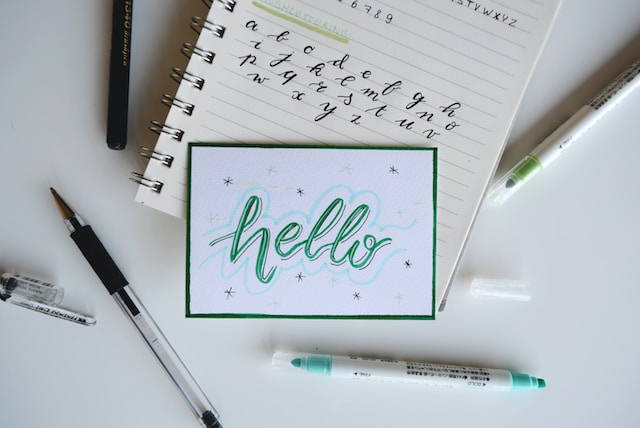DIALOGUE / PHONE STORE
Clerk: Hello sir(madam) welcome to Turkcell. How may I help you? Guest: Yes, I’m interested in buying a phone. Clerk: Sure, follow me. Clerk: Ok, here are our phones. This is the newest phone that just came out….
DAILY ENGLISH EXPRESSIONS 3
Common Signs Entrance. Exit. No entry. No smoking. Danger. Stop! Emergencies Help! Police! Where is/are the police? Stop! Go away! Leave me alone! Look out! Come here. Would you please come here? Can you help me? What happened?…
SPEAKING LIKE AN ENGLISHMAN
Street English – Learn Casual English Expressions Learning to speak like a local! Here are some casual English expressions commonly used in the UK: Expressions: Ace: If someone says “Ace” to you, it means “great.” This word is…
CONVERSATIONAL ENGLISH 2 / SO, TOO, NEITHER / NOR, EITHER
Short Responses with So, Too, Neither, Either Learn how to use short responses like so, too, neither, and either in English conversations. Examples: A: I am really hungry. B: So am I. A: I like this car. B:…
SPEAKING FORMULAS
Formal and Informal Speaking Tips Learn about formal, less formal, and informal speaking formulas in English conversations. Greeting Someone Informal: Morning! (Good morning!) Hello, there! (Hello) Hello, everybody! (Hello, everyone) Evening! (Good evening) Afternoon! (Good afternoon) Less Formal:…
ARE YOU NEW IN THE UK? WELCOME!
Introduction to British Culture Everyday Interactions Life in the UK may seem quite different. Perhaps you’re already missing your family and friends. Maybe you find British culture unusual and confusing at times. We hope this guide will help…
HOW TO EASILY LEARN A LANGUAGE
First of all, let go of the fear of “not being able to learn a language” because your brain operates based on the signals it receives. Don’t be afraid to make mistakes, because correctness in language often comes…
HOW DO WE LEARN VOCABULARY?
How to Learn Vocabulary Some linguists say that learning more vocabulary and expressions rather than grammar makes it easier to convey your ideas. “If you spend most of your time studying grammar, your English will not improve very…
CONQUER ENGLISH
Conquerenglish.com was established by a group of experienced educators with the aim of sharing the enjoyable side of education. Within this platform, there will be various levels of instructional videos, topic explanations, topic details, and fun sections to…
THE IMPORTANCE OF LEARNING ENGLISH VOCABULARY
Effective Ways to Improve Your Vocabulary in English As we all know, when learning a new language, it’s not enough to focus solely on grammar. No matter how strong our grammar knowledge is, if our vocabulary is lacking,…
Five things to do in London
Welcome to London! What a great city to be in! Can you hear the lively sounds of the city? If you are newly arrived to this great city and have never been in there before, this great guide…
TEACHING TECHNIQUES IN ENGLISH
Teaching Techniques in English For Teachers Communicative Activities Communicative activities create situations with information or thought gaps to encourage interaction. Participants explore what others think or know through interactive question-answer formats. Conversation Practice Teachers ask individual questions about…
WHAT TO DO IN LONDON?
Learning English and being curious about England go hand in hand. We’ve prepared an article on what you can do in the heart of England, London, where you can practice the English you’ve learned. For friends planning to…
TESTING FOR DIFFERENT LEVEL
Test Preparation – Testing for Different Levels Cambridge ESOL WHAT IS CAMBRIDGE ESOL? Cambridge ESOL (English for Speakers of Other Languages) is an organization affiliated with the renowned Cambridge University. Cambridge ESOL certificates are indicators of success in…
HOW MANY WORDS DO WE NEED TO KNOW?
How Many Words Do You Know? The average vocabulary size for a well-educated individual is around 20,000 words. This number gradually increases with the addition of approximately 5,000 words to one’s vocabulary starting from the age of 6….
READING STORIES IN ENGLISH
The Importance of Reading English Stories During your English language development journey, I’m sure many of you have come across English stories in one way or another. You may have tried reading them and perhaps even been tested…
REPORTED SPEECH 2 / REVISION
Reported Speech 2 / Revision We use Reported Speech when we want to say what someone else said. Direct Speech: “I am going to help you.” Reported Speech: John said he was going to help me. We usually…
MODALS 3 / MUSTN’T NEEDN’T / LESSON 3
Mustn’t (Must Not) In negative sense, when talking about “must – should,” it means there is a prohibition. Examples: You mustn’t smoke here. (It is forbidden to smoke here.) You mustn’t leave the school if you don’t finish…

















